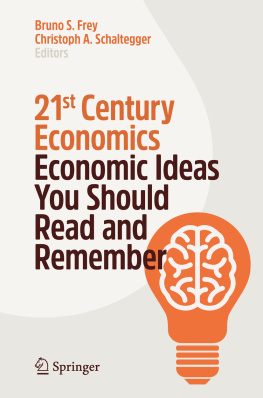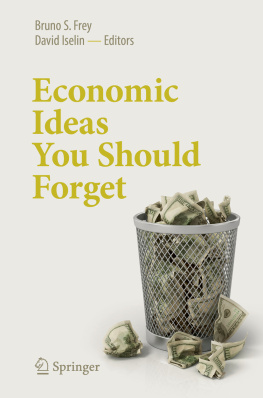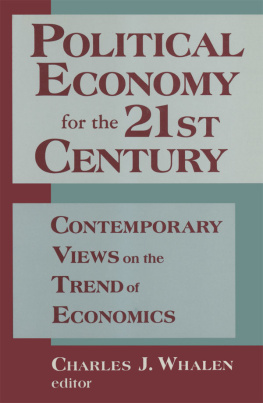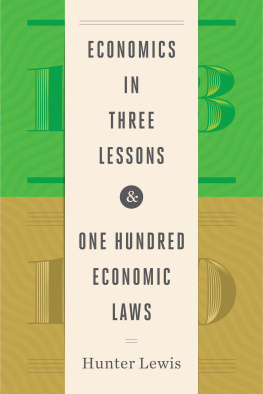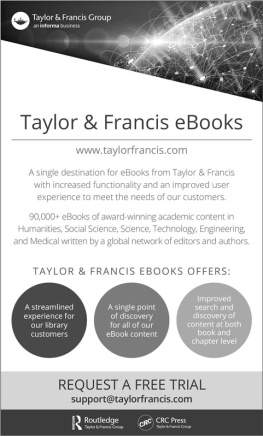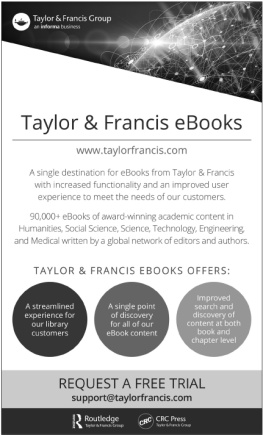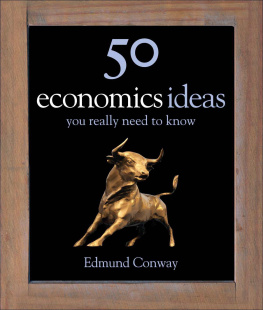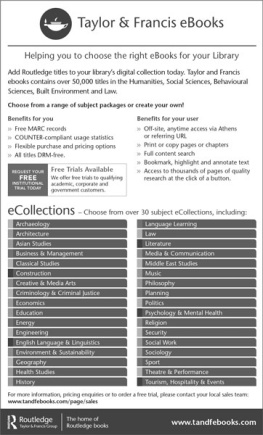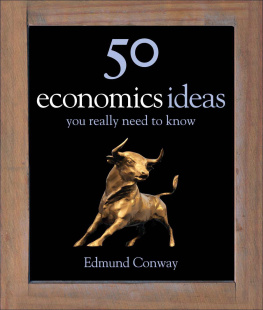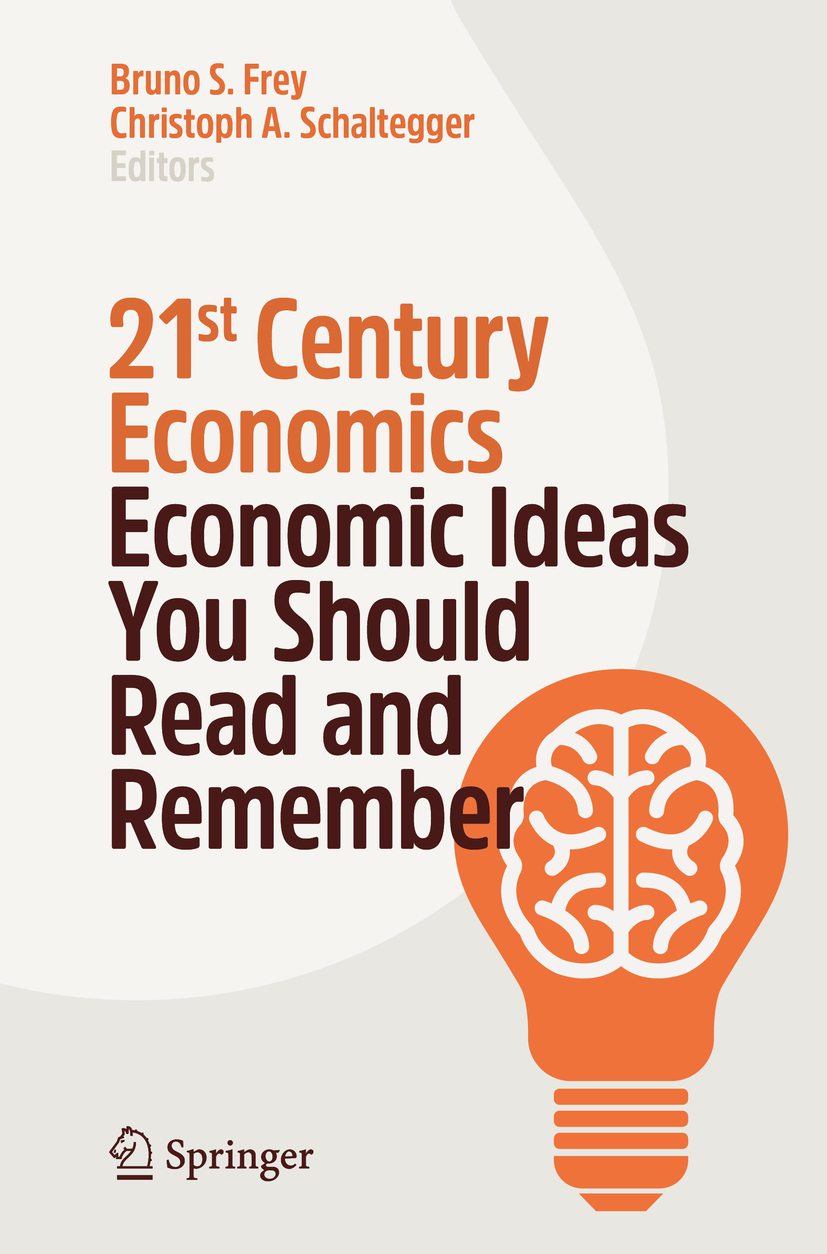Bruno S. Frey (editor) - 21st Century Economics: Economic Ideas You Should Read and Remember
Here you can read online Bruno S. Frey (editor) - 21st Century Economics: Economic Ideas You Should Read and Remember full text of the book (entire story) in english for free. Download pdf and epub, get meaning, cover and reviews about this ebook. year: 2019, publisher: Springer, genre: Politics. Description of the work, (preface) as well as reviews are available. Best literature library LitArk.com created for fans of good reading and offers a wide selection of genres:
Romance novel
Science fiction
Adventure
Detective
Science
History
Home and family
Prose
Art
Politics
Computer
Non-fiction
Religion
Business
Children
Humor
Choose a favorite category and find really read worthwhile books. Enjoy immersion in the world of imagination, feel the emotions of the characters or learn something new for yourself, make an fascinating discovery.
- Book:21st Century Economics: Economic Ideas You Should Read and Remember
- Author:
- Publisher:Springer
- Genre:
- Year:2019
- Rating:4 / 5
- Favourites:Add to favourites
- Your mark:
21st Century Economics: Economic Ideas You Should Read and Remember: summary, description and annotation
We offer to read an annotation, description, summary or preface (depends on what the author of the book "21st Century Economics: Economic Ideas You Should Read and Remember" wrote himself). If you haven't found the necessary information about the book — write in the comments, we will try to find it.
Economics is a science that can contribute substantial powerful and fresh insights! This book collects essays by leading academics that evaluate the scholarly importance of contemporary economic ideas and concepts, thus providing valuable knowledge about the present state of economics and its progress.
This compilation of short essays helps readers interested in economics to identify 21st century economic ideas that should be read and remembered. The authors state their personal opinion on what matters most in contemporary economics and reveal its fascinating and creative sides.
Bruno S. Frey (editor): author's other books
Who wrote 21st Century Economics: Economic Ideas You Should Read and Remember? Find out the surname, the name of the author of the book and a list of all author's works by series.

